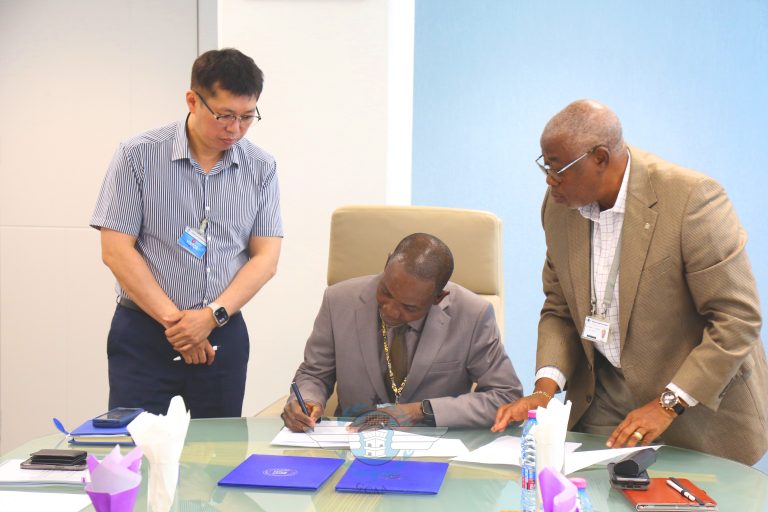The Ghana Civil Aviation Authority (GCAA) and the Korea Transportation Safety Authority (KOTSA) have signed a Letter of Intent (LOI) on the formulation of a drone sector roadmap and candidate projects. The ceremony was held at the GCAA headquarters at Kotoka International Airport.
The South Korean delegation included Principal Researchers Cho Joo-Yong and Jung Gi-hun, as well as Professor Lee Byung-seok, Director of the Drone Security Strategy Institute at Soonchunhyang University.
In addition to the signing ceremony, the visit by the South Korean delegation aimed to finalise discussions on a comprehensive cooperation plan and to conduct a preliminary stakeholder survey within Ghana’s drone sector.
Under South Korea’s Official Development Assistance (ODA) programme – which provides non-repayable aid in the form of financial support, goods or services – KOTSA, a quasi-governmental agency under the country’s Ministry of Land, Infrastructure and Transport, will implement the Ghana Drone Initiative. The initiative aims to support sustainable development goals by addressing key needs in areas such as education, healthcare, infrastructure and human resource development.
The drone sector roadmap and candidate projects initiative, scheduled to begin in 2025, will span eight months. This foundational project is intended to guide the structured development of Ghana’s drone ecosystem.
Additionally, the South Korean delegation is planning three further projects aimed at advancing Ghana’s drone sector:
- Regulatory Framework and Drone Safety Management Project – Commencing in 2028 and running for five years.
- Drone Pilot Training Programme – Set to begin in 2030 and continue for four years.
- Drone Industry Ecosystem Development Project – Starting in 2032, also with a four-year duration.
The South Korean delegation emphasised the importance of first establishing a robust roadmap and identifying candidate projects to ensure targeted support and alignment with Ghana’s national development goals.
Welcoming the delegation, the Acting Director-General of the GCAA, Rev. Stephen Wilfred Arthur, underscored the increasing importance of drone operations in Ghana and the need for robust regulatory frameworks. He noted that beyond air traffic considerations, attention must also be paid to the security implications of drone operations.
Rev. Arthur reaffirmed that the GCAA already has directives in place governing the importation, use and operationalisation of drones in Ghana. He also highlighted ongoing efforts to integrate drone activities into Ghana’s air traffic management systems through the use of advanced software solutions.
Describing the drone sector as a dynamic and rapidly evolving industry, Rev. Arthur welcomed the South Korean initiative as timely and well-aligned with Ghana’s needs.
For more information




